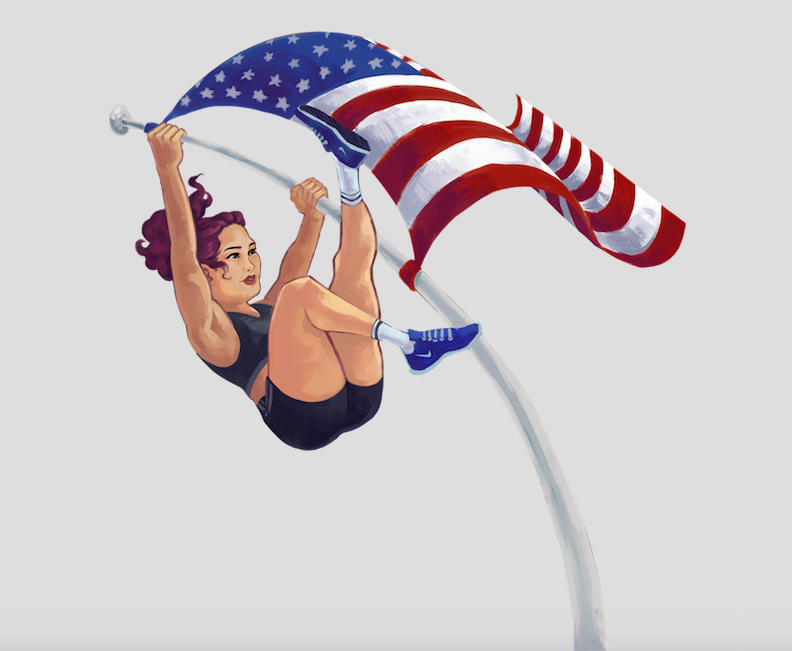Inseparable: The History of Political Protest Within Sports
by Ryan Black | published Nov. 4th, 2016
Igniting much discussion this year, athletes like Colin Kaepernick and Megan Rapinoe have been subject to attention for their endeavors to stand in solidarity with the Black Lives Matter movement. By kneeling during the playing of the national anthem, both Kapernick and Rapinoe have strived to use their celebrity to highlight issues which they — and many others — see as injustices that need to be addressed. While these protests may be filling up today's headlines, the prospect of athletes taking stances on larger social issues is not new.
The Power and Importance of Sports as a Platform
One of the most memorable moments of this kind occurred when American gold medalist Tomie Smith and bronze medalist John Carlos raised their arms in the Black Power Salute after their victories in the 200-meter race of the 1968 Olympics.
“In 1968, there was upheaval in the United States," said
"[Other countries] had seen African American children being attacked by Bull Connor's dogs," said Carroll. "People around the world had seen the repression of African American Civil Rights activists and they understood about the struggle." Smith's and Carlos's gestures conveyed that Civil Rights had not been enough, that there was a need for 'black power' and even black leadership. This message resonated in countries like South Africa, whose black citizens were still suffering under apartheid.
According to Dr. Michael Brown, also of RIT’s Department of History,
When athletes like Smith and Carlos become spokespeople it disrupts the notion that sports are this “ideal” world, one that is completely cut off from politics.
“There’s an idea that sports are kind of a better version of the society in which they happen,” Brown said. “Sports have been written about, talked about and depicted in film in such a way to make them schools of virtue — models for how we should be.”
Brown said that many fans see sports teams as an embodiment of their city or even country and, by extension, the best of their spirit or character. Yet, as Brown pointed out, "when one of those athletes turns around and holds up a mirror to that society and says, 'Instead of looking at the sporting world as a representation of your virtue, take a look at this,' it disrupts the cultural role that sports play."
Take for instance the often idealized story of Jesse Owens, an African American runner remembered for going into Hitler’s Germany and winning in the face of the Nazi’s racist ideology. His victory was juxtaposed with the reality of the rampant racism within America during the mid-1930s.
Athletes as Respected Voices
Several athletes have exercised their influence outside of their sport, as well. Muhammad Ali’s refusal to enlist in the Vietnam War had quite an impact on how the anti-war movement was perceived. At the time, protests against the war were primarily led by college-aged adults, including some of those in the counterculture movement. Those who were pro-war tended to be older and generally disregarded those rebelling as young and ignorant.
"So there is a way in which they could dismiss their sincere political concerns, whereas somebody like Ali was older and well respected," said Carroll.
Brown noted how our society has, for the most part, widely revered athletes. Sports have in many cases allowed individuals to achieve a level of status with which they can express themselves and be heard, a public awareness
"Because African Americans have been systematically denied access to political, social and economic positions that could become those platforms, athletes and entertainers have been a kind of leading edge of publicly visible, publicly recognized and publicly respected African American figures," said Brown.
How it has Evolved in Today’s Media Landscape
Carroll noted that today there are fewer times when everyone is watching one broadcast of an event like the 1968 Olympics. Still, as one of the last mainstays of what Carol terms “mass audience television,” sports still retain much of their influencing power.
“You might have an opportunity to see the act of protest in an unmediated way, an unfiltered way," said Brown. "So you're not seeing footage from earlier in the day on the news with news caster commentary around it, and the clip being packaged in certain ways.”
Brown also pointed out how outlets like Twitter have made us far more used to athletes having a voice.
“We are getting used to athletes as people who don’t just do things with their bodies, but they also use their brains and they have a voice as well as a physique,” said Brown.



